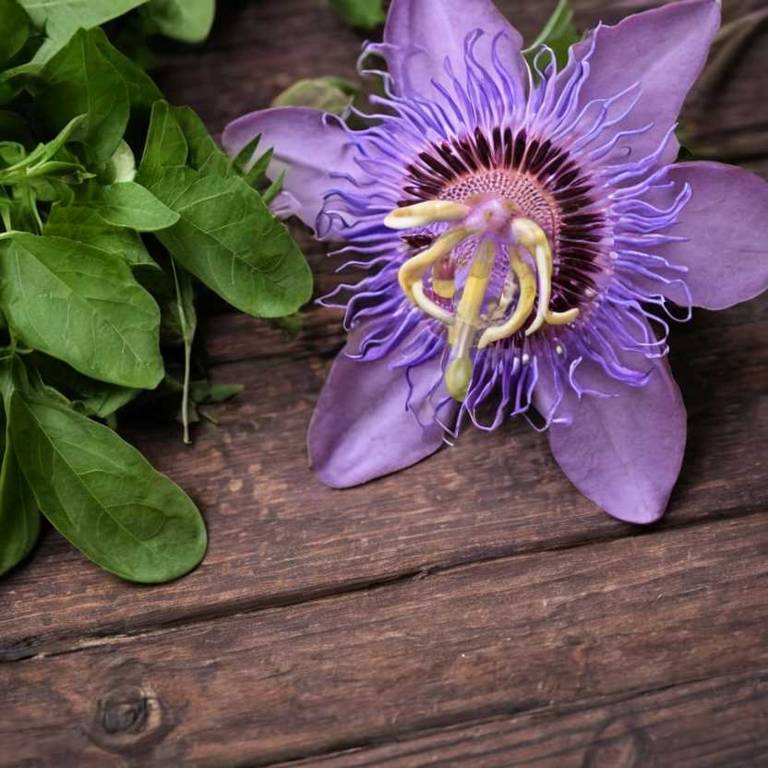Maypop (Passiflora incarnata)
Maypop (Passiflora incarnata) is a member of the Passifloraceae family, native to Eastern North America, Southeastern United States, and Southern United States. Traditionally, its leaves, fruits, and flowers have been used for infusions, decoctions, and tinctures.
This herb is particularly valued for its sedative, antispasmodic, and tonic actions, and has a long history of use in native american herbal medicine, european herbal medicine, and traditional chinese medicine.

Quick Facts / Key Information
| Common Name | Maypop |
|---|---|
| Scientific Name | Passiflora incarnata |
| Plant Family | Passifloraceae |
| Genus | Passiflora |
| Species | incarnata |
| Native Range | Eastern North America, Southeastern United States, Southern United States |
| Plant Parts Used | Leaves, Fruits, Flowers |
| Primary Medicinal Actions | Sedative, Antispasmodic, Tonic |
| Primary Traditional Systems | Native American Herbal Medicine, European Herbal Medicine, Traditional Chinese Medicine |
| Historical Preparation Methods | Infusion, Decoction, Tincture |
Botanical Identity
- Scientific Name
- Passiflora incarnata
- Common Name
- Maypop
- Synonyms / Alternative Names
- Passionflower, Wild Passionflower, Wild Passion Vine
- Plant Family
- Passifloraceae
- Genus
- Passiflora
Botanical Description
- Growth Habit
- Perennial herbaceous plant.
- Height
- It typically grows to a height of 2 to 5 meters.
- Leaves
- Simple leaves with upper surface dark green and lower surface pale green, bearing distinct stomatal bands along the midrib.
- Flowers
- Inflorescences are terminal racemes bearing actinomorphic flowers with five white petals, five yellow sepals, and a crown of five red filaments surrounding a central reproductive structure.
- Stems
- Erect, woody, branched, with opposite leaf scars and persistent stipular remnants.
Traditional Uses / Historical Use
Traditional Systems
- Native American Herbal Medicine
- European Herbal Medicine
Historical Preparation Methods
- Infusion
- Decoction
- Tincture
- Poultice
Medicinal Actions
- Sedative
- Traditionally described as a warming sedative, in nervous system–related contexts.
- Antispasmodic
- As described in traditional systems, a calming antispasmodic, in smooth muscle contexts.
- Tonic
- Commonly referenced as a mild tonic, for broad-use formulations.
- Anti-inflammatory
- Historically regarded as a gentle anti-inflammatory, in inflammation-focused discussions.
Active Compounds
- Flavonoid
- Naturally occurring polyphenols that contribute to pigmentation and structural chemistry.
- Glycoside
- Plant-produced compounds commonly stored in inactive glycosylated forms.
- Phenolic Acid
- Naturally occurring phenolic compounds present in many plant species.
- Tannin
- High-molecular-weight phenolic compounds found in many plant species.
Modern Research Overview
Contemporary research on this plant includes areas such as chemical analysis, laboratory-based studies, and observational research. Detailed summaries of published findings are not included at this stage and will be added during future content updates.
Safety & Contraindications
- General Precautions
- Some general precautions have been associated with the use of this herb.
- Contraindications
- Certain contraindications have been reported in relation to the use of this herb.
- Allergies
- There is insufficient evidence to determine whether this herb commonly causes allergic reactions.
- Drug Interactions
- Interactions with prescription medications have not been well documented.
- Toxicity
- Reports indicate that this herb may exhibit toxic properties in some contexts.
- Pregnancy & Breastfeeding
- There is insufficient evidence to determine the safety of this herb during pregnancy or breastfeeding.
Preparation & Usage Methods
- Infusion
- Plant material is steeped in hot water to extract water-soluble compounds.
- Decoction
- Plant material is simmered in water to extract compounds from tougher parts.
- Poultice
- Fresh or dried plant material is applied externally to the skin.
- Tincture
- This method preserves plant compounds using an alcohol-based solution.
- Extract
- This method isolates plant compounds using alternative solvents.
Growing, Harvesting & Storage
Growing / Cultivation
- Soil
- Prefers loamy soil with well-drained conditions. Typically grows best in organically rich soils.
- Sunlight
- Thrives in full sun. Tolerates full sun to partial shade.
- Watering
- Prefers moist soils. Tolerates periodic dry conditions.
Medical Disclaimer
The information provided on this page is for educational and informational purposes only. It is not intended to diagnose, treat, cure, or prevent any medical condition. Always consult a qualified healthcare professional before using any herb for medicinal purposes.